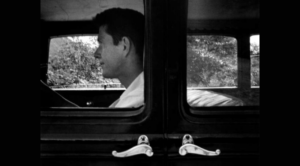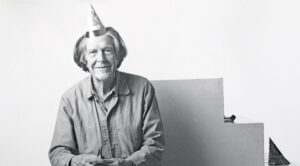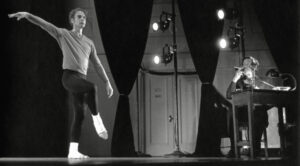In 1972, just three years after New York’s Stonewall Riots, the Michigan Gay Confederation organized Detroit’s first gay pride march. Hundreds of participants rallied proudly down Woodward Avenue in one of America’s earliest examples of LGBTQ+ organizing.

Today, June 24th, marks the fiftieth anniversary of Detroit Pride, a milestone that we are also celebrating at Detroit Opera! Dr. David DiChiera founded the company on the values of arts education and community development, and we carry on that tradition today. Detroit Opera is proud to reflect and represent our city on-stage, including recent contemporary works that highlight LGBTQ+ community members and issues.
27
In the opera 27, composer Ricky Ian Gordon and librettist Royce Vavrek explore the relationship of Gertrude Stein and Alice B. Toklas in the setting of their salon on the Left Bank of Paris, where they influenced and inspired some of the most notable artists and writers of their time. This queer romance, about two Jewish lesbians caught between the two world wars, showcases the human capacity to cultivate beauty in the face of looming ruin.

Detroit Opera presented 27 in partnership with Arthur Miller Theatre and Macomb Center for the Performing Arts in 2018, four years after its premiere. This chamber opera featured our 2018 cohort of studio artists including Monica Dewey as Alice B. Toklas, Briana Elyse Hunter as Gertrude Stein, Michael Day as Pablo Picasso/F. Scott Fitzgerald, Harry Greenleaf as Leo Stein/Man Ray, and Erik Van Heyningen as Henri Matisse/Ernest Hemingway.

You can find out more about this piece in our OperaHERE podcast:
Champion
Terence Blanchard composed Champion, his first “opera in jazz,” in 2013. The work is based on the life of Black American boxer Emile Griffith, a legendary athlete who won titles in three weight divisions and retired with a record of 85-24-2 with 25 wins by knockout.

As Mark Stryker writes,
“Emile Griffith’s life fired Blanchard’s musical imagination. It’s a dramatic and tragic story. Griffith was gay (or perhaps bisexual) and closeted in the ultramacho world of prize fighting. He also killed a man in the ring. In a televised welterweight title fight against Benny “Kid” Paret in 1962, Griffith unleashed a barrage of punches — 17 blows in no more than seven seconds — that knocked Paret into a coma; he died 10 days later.
The back story is that at the weigh-in before the fight, the Cuban-born Paret taunted Griffith, challenging his manhood by calling him a “maricón,” a Spanish slur aimed at homosexuals. Griffith, who struggled with his sexual identity throughout his life, was also haunted by Paret’s death for the rest of his days.
‘I kill a man and most people forgive me,” Griffith once said. “However, I love a man, and many say this is unforgiveable and this makes me an evil person.’”

In 2020, Detroit Opera was in the midst of production for Champion when quarantines and pandemic restrictions forced the company to suspend performances. We were thrilled to welcome audiences back to our home in 2022 and hope to present Blanchard’s work on our stage in the near future.
You can read more about Champion from Stryker in our blog here:
Ainadamar

The story of Federico García Lorca, a queer revolutionary Spanish poet from the early 1900s, revolves around his work changing perceptions around taboo subjects such as homosexuality, class consciousness, and women’s rights. His poetry made him an international icon and reignited an interest in traditional Spanish culture, yet his identity, as an out gay man, made Lorca a target of the state. In 1936 he was assassinated at the Fuente Grande for his politics and sexual orientation.

For the 2022 – 2023 season, Detroit Opera will present Ainadamar (Fountain of Tears) by Osvaldo Golijov. The piece, told through the lens of Lorca’s muse, the actress Margarita Virgu, looks at Lorca’s life and cultural impact through a series of flashbacks.





